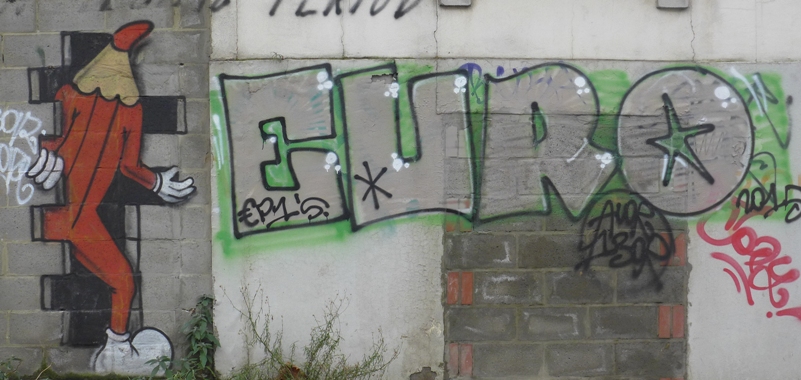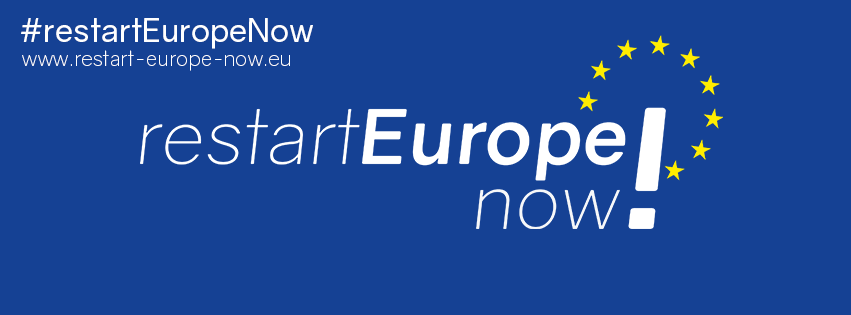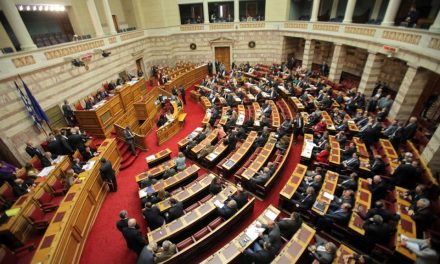A recent publication under the title “A Europe built on solidarity is possible – Pamphlet for another European Union” by Klaus Busch, Axel Troost, Gesine Schwan, Frank Bsirske, Joachim Bischoff, Mechthild Schrooten and Harald Wolf focuses on the current crisis processes in the EU and puts forward practicable solutions for resolving them.*
The authors stress that “The European Union is at a crossroads. For many years the European idea was associated with the hope of finally overcorning the national trenches and securing peace in Europe after two World Wars. Cooperation instead of conffontation – for many, this was the foundation for prosperity and democracy. Little of this is still recognisable today. It cannot be ignored – European lntegration is undergolng a deep, if not existential crisis. “The failure of Europe is a realistic scenario’, as President of the European Parliament Martin Schulz stated.”
The case for a radical reform of the EU
Chapter 1 deals first of all with the economic and social crises of the EU and the problematic re-nationalisation trends. The refugee crisis, the break with the “welcome culture” and the concept of “Fortress Europe” are the subjects examined in Chapter 2. The next chapter then investigates the flaws in the design of the Maastricht Treaty and the economic and social impacts of austerity policy in the euro zone (Chapter 3). The central fourth chapter discusses in depth the “Left’s” attempts to break out of the euro system. Here it becomes apparent that the “Eurexit” position is argumentationally weak on many fronts. Were it to be implemented politically, the EU, but also the Exit states, would be plunged into massive socio-economic crises.
In light of the negative impacts of leaving the euro, in Chapter 5 this paper makes the case for a radical reform of the EU and the euro system. It shows that with a far-reaching paradigm shift in economic, employment and social policy and by introducing an alternative European system for regulating current account imbalances (clearing union), national debts and the financial markets, the EU can weather its crises and stabilise. Another Europe built on solidarity is possible!
For a European Union built on solidarity
Given the fundamental crisis the EU finds itself in, the pamphlet emphatically calls for a “Plan A”, which stabilises the euro and the EU through radical reform. The starting points are a common social and economic policy for the Member States and decisive democratisation of the EU. By contrast it firmly rejects the “Plan B” concept – leaving the euro – as the euro zone and the EU would be plunged into an even graver economic crisis were they to return to national currencies – most severely incidentally in the less developed Member States. An economic crisis of this kind would also destroy the single market and be so severe that it would leave the European Union with scarcely any chance of political survival.
The political mainstream may have political majorities, but it has no solutions at hand to put an end to the EU crisis. The far-reaching flaws in the Maastricht Economic and Monetary Union and the economic and social blows dealt above all to Southern Europe by European austerity policy mean that critics on the right and left edge of the political spectrum in many cases see the only solution in returning to the nation state or dismantling or rolling back the euro. In doing so they are first ignoring the cited major political and economic risks inherent to this path. Second they are ignoring the powerlessness of the nation states in managing and controlling the global ecological and economic problems of the world, including the international financial markets’ susceptibility to crises and the ever-growing migration and refugee movements.
The central message of this polemic paper lies in the thesis that the EU and the euro can be reformed. By introducing the reforms outlined, such as the alternative economic policy, the clearing union, the common debt policy, the steps towards a European Social Union and a democratically elected and overseen European Economic Government, the EU and the euro can effectively be transformed towards a Europe built on solidarity.
The European Union will only survive if it launches the debate over the best vision for its future and if the progressive forces in the political sphere can assert the model of a Eu-rope built on solidarity.
The six pillars of a radical reform of the euro: more Europe, but different
Given the negative impacts of leaving the euro it makes more sense to fight for a radical reform of the euro system. This means a far-reaching paradigm shift – doing away with the flawed institutional design of the Maastricht EMU has to be combined with a transition towards an alternative economic policy and a European transfer, social and financial market policy based on solidarity. In this alternative programme, the following elements are essential:
- a new European economic policy
- a clearing union to avoid external trade imbalances between the Member States,
- a joint debt policy,
- European regulation of social policies to do away with the system of competing states,
- greater regulation of the financial markets and
- a democratically legitimised and overseen European Economic Government.
 *Book publication (in German): Klaus Busch/Axel Troost/Gesine Schwan/Frank Bsirske/Joachim Bischoff/Mechthild Schrooten/Harald Wolf u.a.: Europa geht auch solidarisch! Streitschrift für eine andere Europäische Union, Hamburg: VSA 2016
*Book publication (in German): Klaus Busch/Axel Troost/Gesine Schwan/Frank Bsirske/Joachim Bischoff/Mechthild Schrooten/Harald Wolf u.a.: Europa geht auch solidarisch! Streitschrift für eine andere Europäische Union, Hamburg: VSA 2016
Klaus Busch is retired professor for European Studies at the University of Osnabrück and adviser for European affairs of the German United Services Trade Union ver.di.
Axel Troost, PhD., is Deputy Party Chairman of DIE LINKE and General Secretary of the Working Group on Alternative Economic Policy.
Gesine Schwan, Prof., is co-founder and president of the HUMBOLDT-VIADRINA Governance Platform. Since 1996 she is member of the Commission for Fundamental Values of the German Social Democratic Party (SPD).
Frank Bsirske is chair of the German United Services Trade Union ver.di and Member of Alliance ’90/The Greens (Bündnis90/Die Grünen).
Joachim Bischoff, PhD., is an economist and publicist, co-editor of the journal Sozialismus.
Mechthild Schrooten, is professor for economics at Bremen City University of Applied Sciences and spokesperson of the Working Group on Alternative Economic Policy.
Harald Wolf was Senator for Economics in Berlin from 2002 to 2011. Since then he is Member of the Parliament and spokesperson for energy-policy of the parliamentary group DIE LINKE.
Read more: Initiative “Restart Europe Now!”; Europa neu begründen














